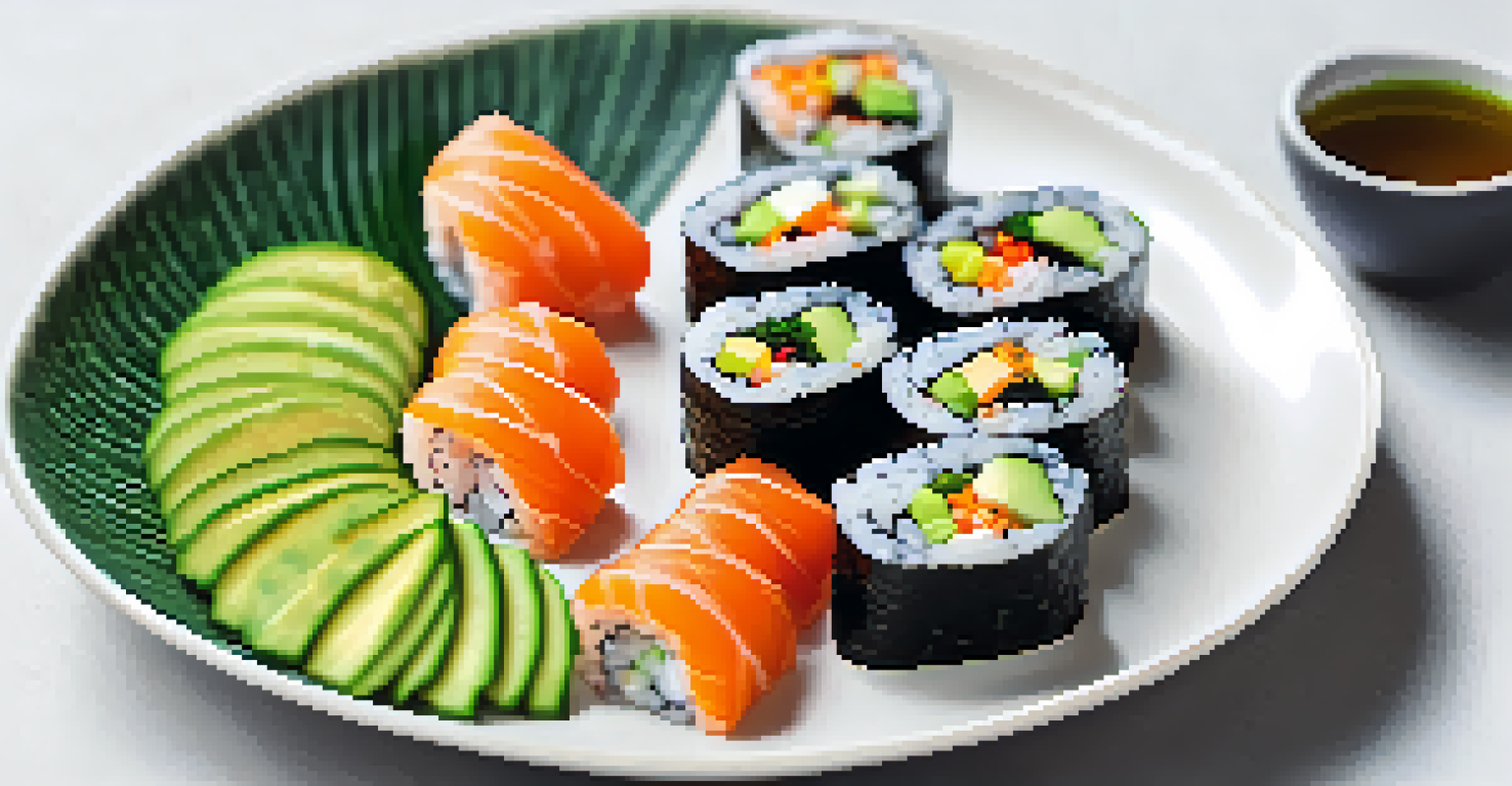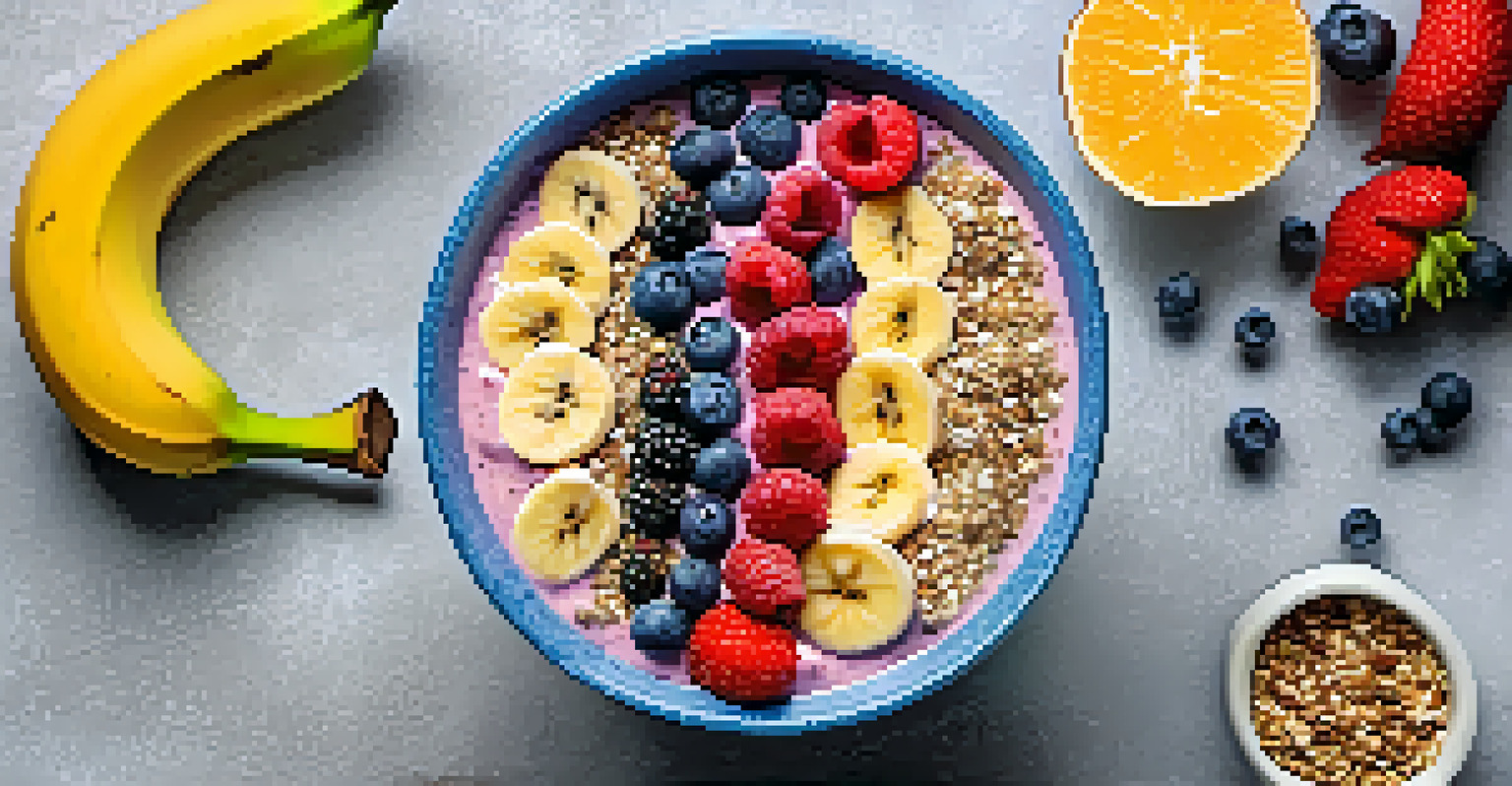Debunking Myths: Misconceptions About Raw Food Diets Explained

Myth 1: Raw Food Diets Are Always Healthier
Many people believe that a raw food diet is inherently healthier than a traditional diet. However, this isn't always the case, as it depends on how balanced the diet is. For instance, a diet consisting solely of raw junk foods like raw cookies and chips may not provide the nutrients your body needs.
Let food be thy medicine and medicine be thy food.
Moreover, cooking certain foods can actually enhance their nutritional value. For example, cooking tomatoes increases the availability of lycopene, a powerful antioxidant. So, it’s important to remember that a well-rounded approach, including both raw and cooked foods, may often be the healthiest option.
In essence, health isn’t determined solely by whether food is raw or cooked but by the overall quality and variety of the diet.
Myth 2: You Can't Get Enough Protein on a Raw Diet
A common misconception is that raw food diets lack sufficient protein. This myth often stems from the idea that animal products are the only viable protein sources. In reality, there are plenty of plant-based foods rich in protein, such as nuts, seeds, lentils, and legumes.

For example, hemp seeds and chia seeds are excellent sources of protein that can easily be incorporated into smoothies or salads. By diversifying your intake, you can meet your protein needs without relying on cooked or animal-based sources.
Balanced Diet is Key to Health
The health benefits of a diet depend on its overall quality and variety, not just whether foods are raw or cooked.
So, while it may require some planning, a raw food diet can indeed provide adequate protein when constructed thoughtfully.
Myth 3: Raw Foods Are Difficult to Digest
Some people believe that raw foods are harder to digest compared to cooked foods. However, this isn't universally true; many individuals find that raw fruits and vegetables are quite easy on the digestive system. Foods like bananas and cucumbers can be very gentle and refreshing.
The food you eat can either be the safest and most powerful form of medicine or the slowest form of poison.
Cooking can break down fibers and make some foods easier to digest, but raw foods also contain enzymes that aid digestion. For instance, pineapple contains bromelain, an enzyme that helps break down proteins, potentially making it easier to digest.
Ultimately, it varies from person to person, so listening to your body is key. Some may thrive on raw foods, while others may prefer a mix.
Myth 4: Raw Food Diets Are Boring and Restrictive
Many assume that eating raw means a monotonous diet of salads and fruits. In reality, the raw food world is incredibly diverse and creative! From raw vegan sushi to dehydrated crackers and even smoothies, there’s a plethora of options to explore.
People who embrace raw diets often experiment with various cuisines, blending flavors and textures that make meals exciting. You can whip up colorful raw platters or even indulge in decadent raw desserts made from nuts and fruit.
Raw Diets Offer Diverse Options
Raw food diets can be exciting and varied, featuring creative meals beyond just salads and fruits.
So, rather than being restrictive, a raw food diet can open the door to a culinary adventure that challenges your palate and keeps your meals fresh.
Myth 5: All Raw Foods Are Nutrient-Dense
While many raw foods are nutrient-rich, not all raw options are created equal. For example, some raw snacks, like those high in sugars or fats, can be misleadingly unhealthy. Just because something is raw doesn’t automatically make it a health food.
It's crucial to focus on whole, minimally processed foods for optimal nutrition. Leafy greens, colorful vegetables, and fruits are excellent choices, but raw energy bars or chips may not provide the same benefits.
In short, it's about quality over quantity. Being selective with your raw food choices will ensure you're reaping the true benefits of this diet.
Myth 6: Raw Diets Lead to Nutritional Deficiencies
Another prevalent myth is that raw food diets inevitably lead to nutritional deficiencies, particularly in vitamins and minerals. While it’s true that some nutrients can diminish during cooking, many raw foods are packed with essential nutrients that can support your health.
For instance, raw fruits and vegetables are often rich in vitamins A and C, which can boost your immune system. By incorporating a variety of raw foods, you can create a well-rounded diet that meets your nutritional needs.
Raw Foods Can Meet Nutritional Needs
A well-planned raw food diet can provide adequate nutrition, but it's important to choose whole, nutrient-dense ingredients.
However, it’s still wise to consult with a healthcare professional to ensure you're getting everything your body requires, especially if you're considering a long-term raw food lifestyle.
Myth 7: Raw Food Diets Are Only for Weight Loss
Many people associate raw food diets solely with weight loss, but this is a narrow view of their potential benefits. While some may turn to raw foods for weight management, others seek it for improved energy levels, better digestion, or overall health.
In fact, a raw food diet can help foster a healthier relationship with food by encouraging mindfulness and the consumption of whole foods. This can lead to sustainable lifestyle changes rather than just a temporary weight loss solution.

So, while weight loss can be a positive outcome, it's just one of many reasons people choose to adopt a raw food diet.
Myth 8: Raw Food Diets Are Just a Trend
Lastly, some skeptics view raw food diets as mere fads or trends, dismissing them as unsustainable. However, raw food eating has roots in various cultures and has been embraced for centuries for its health benefits and vibrant flavors.
Many individuals who adopt raw food diets do so as part of a larger lifestyle change that emphasizes health and sustainability. This isn’t just a fleeting trend; it’s about making conscious choices that align with personal values.
In conclusion, while raw food diets may be trendy at times, they are founded on principles of health, sustainability, and wellness that resonate with many people today.